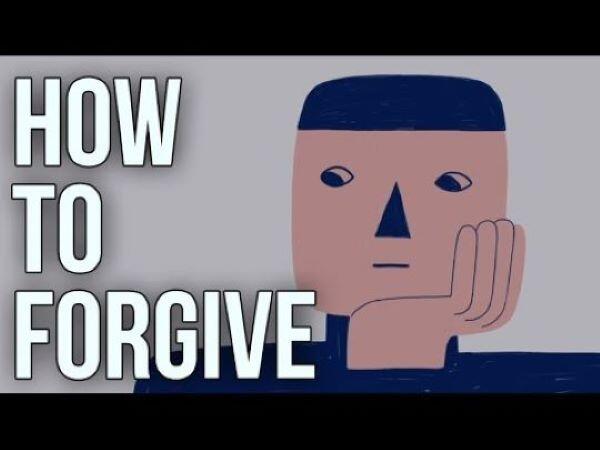
Enlightenment poet Alexander Poet famously penned “To err is human, to forgive divine.” What might explain this apparent contradiction? Maybe we find it hard to forgive others because we feel that their flaws exceed our own. Indeed, many people have said and done things that we find deeply offensive and unthinkable. Or maybe we find it hard to forgive others due to the fact that they err differently than us, which blinds us to the fact that we are no morally superior. Or, yet more insidiously, maybe we find it hard to forgive others because our pride and ego refuse to let go, independent of all reason and balance.
Understandably or not, the refusal or inability to forgive others almost always ends up harming us alone and not the other person — like “drinking from a poisoned cup and wishing the other person would die.”
To a person of faith, forgiveness is also a virtue that stems from faith in God as judge and ultimate arbiter — not ourselves — and faith in our own individual need for forgiveness from God.
Today, I’ve transcribed a short, insightful clip by YouTube’s “The School of Life” about the elusive art of forgiveness. The author identifies two insights as pivotal to being able to forgive others: 1-) understanding how they got to where they are; and 2-) self-awareness about our own flaws and the way we have harmed others, consciously or not.
Checkout out the two key insights below and the complete video and transcript!
Behind every failing, behind everything that’s wrong and infuriating about those we meet, is a decisive trauma encountered before someone could cope with it properly.
The School of Life
We must forgive because, not right now, not over this, but one day, over something, we will need to be forgiven.
The School of Life
For more, see the complete archive of articles on integrity.
Transcript of “How To Forgive” by The School of Life
It can be so hard to forgive because so often we simply are in the right, and the scale of the folly, thoughtlessness, and meanness of others seems utter beyond our own measure. But there are two inviolable ideas, which should, nevertheless, in the face of the grossest behavior, be kept in mind to increase our chances of being able to forgive.
Firstly, we must remember how the other person got there — to this place of idiocy and cruelty. Every irritating thought in another person has a long history behind it. They’ve become like this because of flaws in their development, which they did not choose for themselves. They were shaped by troubles. Troubles which we cannot see, but which we know must exist.
The arrogant person was trapped at some key point in their personal evolution in an environment where being modest and reasonable seemed to guarantee they’d be trampled on. The hypercritical has lived too much, as their personality was growing, around people who couldn’t take a gentle hint. So they came to rely on blunt assertions. The frustratingly timid, mousy person was at some stage terrified. The show-off learned their irritating manner around people who were hard to please.
Behind every failing, behind everything that’s wrong and infuriating about those we meet, is a decisive trauma encountered before someone could cope with it properly. They are maddening, but they got to be this way without meaning to. To forgive is to understand the origins of evil and cruelty.
Secondly, and very strangely, there are difficult things about you, too. Of course, not in this area, not in any area remotely connected to the sort of lapses that tend to destroy your faith in humanity.
But, in some areas, quiet areas, that you forget about as soon as you travel through them. You, too, are a deeply imperfect and questionable individual. Gently, you have in your own way, betrayed. Nicely, you have been a coward. Modestly, you have forgotten your privilege. Unthinkably, you have added salt to the wounds of others.
We don’t need to know anything about you to know this as a certainty. We must forgive because, not right now, not over this, but one day, over something, we will need to be forgiven.
We would in the past regularly looked upwards to the heavens for this forgiveness. We do that less and less nowadays. But that doesn’t attenuate the need for some moments when we limber up to utter that most implausible word: “Sorry.”
Or, indeed, stretch our ethical imagination, in order to pronounce those even more arduous and unnatural-sounding words: “I forgive you.”


